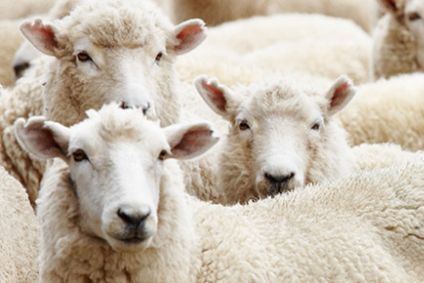
A study of 77 leading Australian and global brands has found that many lack an awareness of animal welfare issues found in common textile supply chains and don’t have policies in place to help safeguard animals.
The research from global animal protection organisation Four Paws also found just 21% of brands traced even a portion of the animal derived materials for animal welfare.
According to its research over 2bn animals are estimated to be used in the global fashion industry every year in the wool, fur, and leather industries alone – many of which suffer poor living conditions, physical mutilation practices and chronic stress.
But customer concern for animals is growing exponentially. A 2019 YouGov poll found that 80% of Australians are concerned about the welfare and treatment of animals in at least one fashion category.
In what is thought to be a world-first Animal Welfare in Fashion Report, Four Paws sets out the first steps for brands to take responsibility for animals in their supply chains.
“It’s time to make the treatment of animals used for fashion a priority, and recognise animal protection as an essential third pillar of ethical fashion,” says Jessica Medcalf, head of programmes at Four Paws Australia and report contributor.

US Tariffs are shifting - will you react or anticipate?
Don’t let policy changes catch you off guard. Stay proactive with real-time data and expert analysis.
By GlobalDataThe report assesses 77 leading Australian and global brands, with the majority owned by nine of the world’s top 20 publicly listed fashion companies which have an estimated market value of over US$550bn.
It looks at the extent to which companies are addressing animal welfare risks in their supply chains, with a focus on four key spotlight issues of material consideration – wool, down, exotic leather and fur. It also highlights the risks of animal-based supply chains in fashion, to animals and brands and retailers.
While there have been efforts made by several brands on animal welfare, most brands were found to lack:
- An awareness of animal welfare issues found in common textile supply chains. Only 38% of the fashion brands consider animal welfare risks to some degree in their supply chains and purchasing practices
- Thorough and effective animal welfare policies. Just 25% of fashion brands have formal animal welfare policies in place to help safeguard animals from these risks. And just 9% of have both an animal welfare policy and meet at least three of five best practice animal welfare principles.
- Traceability in animal-based fashion supply chains, and end-to-end traceability overall. There is a real gap between what brand’s formal policies and statements say, and what they actually do. Only 35% of those with an animal welfare policy are tracing at least some of their animal-based materials, with more than half the brands demonstrating zero evidence of knowing anything about the animal-based textiles they source.
- Transparency to customers about where animal-based products come from and the welfare risks for the animals involved. Just 21% of brands implement assurance schemes which prioritise animal welfare – such as certified wool and down.
That said, many brands have taken proactive steps forward, and there are key steps to integrate animal welfare in a sustainable fashion future. It is recommended that brands:
- Need to cover the basics on animal welfare such as developing a robust animal welfare policy with a vision and an implementation plan, for how to achieve and monitor good animal welfare and transparency practices.
- Make a credible commitment to animal welfare, including the adoption of the best available certification systems, with the highest standard of animal care, to ensure traceability and be able to verify the brand’s claims made in relation to animal welfare.
- Address, monitor and report on animal welfare risks in the supply chain, including the incorporation of animal welfare considerations in decisions by corporate social responsibility and compliance teams and departments involved in sourcing, purchasing and design.
“Animal welfare considerations have been found to be particularly relevant to the UN’s Sustainable Development Goals (SDGs) related to fashion. If the impact of the coronavirus outbreak this year and the SDGs are any indication, the difference over the next decade, between the good and the best performers in terms of ethical fashion, could be down to the brands who integrate animal welfare considerations in their supply chains versus those who do not,” says Gordon Renouf, chief executive officer at Good On You, consultation partners on the report.
Click on the following link to download a copy of the Policy Development Guidelines for Animal Welfare in Textiles.




